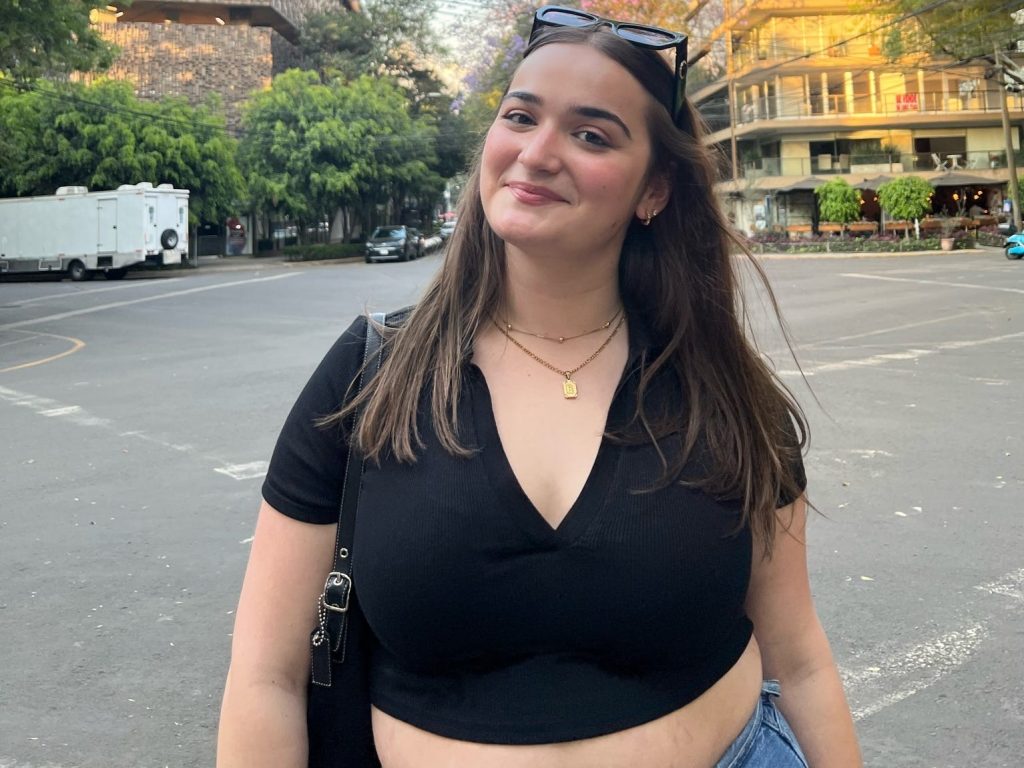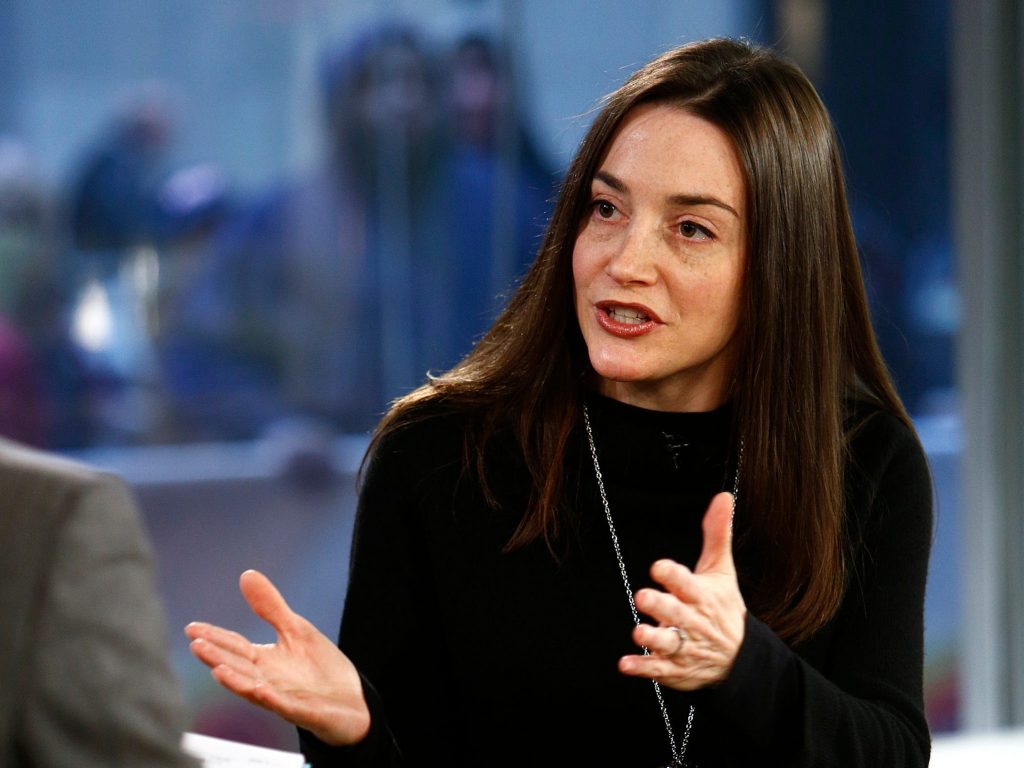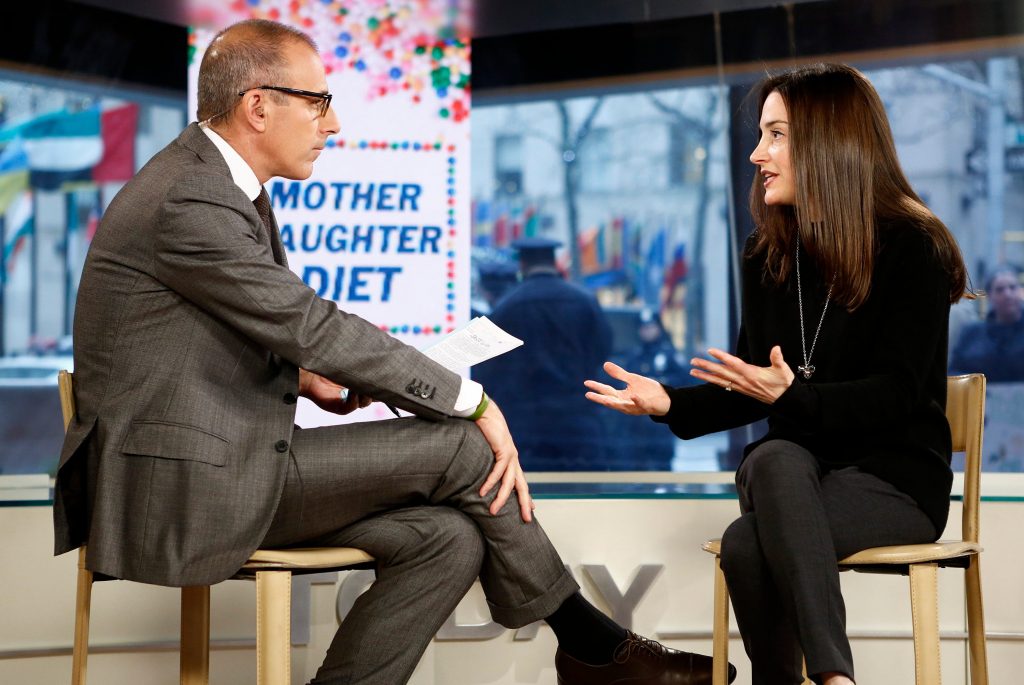a trip to Mexico City in March 2022.Courtesy of Betty Kubovy-Weiss.
- In 2012, Dara-Lynn Weiss wrote for Vogue about her daughter, 7, having obesity.
- Now 18, Betty Kubovy-Weiss speaks to Insider about body image and her relationship with her mom.
- Kubovy-Weiss said she'd "gotten to the point where I was dieting for a decade."
Shopping is generally not a fun experience for 18-year-old Betty Kubovy-Weiss.
The college freshman, who says she has dealt with body-image issues for most of her life, was prone to bursting into tears inside the dressing room.
"It basically happened every time I went shopping. And it still does," Kubovy-Weiss told Insider, adding that a source of her negative experiences was Brandy Melville, the popular store known for its "one size fits most" mantra. "I wouldn't be able to fit into anything and it was just heartwrenching," she said.
As with many people, Kubovy-Weiss's body-image insecurities began from a young age.
But unlike most people, she had her weight issues shared with millions as the subject of a Vogue article penned by her mother, Dara-Lynn Weiss.
In 2012, Betty Kubovy-Weiss' mom, Dara-Lynn Weiss, wrote a Vogue article about her daughter's clinical obesity
In a splashy, four-page spread — festooned with glam photos of mother and daughter lunching in New York City and draped in designer clothes — Weiss detailed her then-7-year-old daughter's clinical obesity. Weiss, citing statistics from the Centers for Disease Control and Prevention, wrote that the threshold for child obesity was falling in the 95th percentile or higher for their age and height; "Bea" (a pseudonym) fell in the 99% percentile, according to Weiss's article. (Many experts now dispute using body mass index, or BMI, as a measure of good health because it doesn't take other important factors such as family history, genetics, lifestyle, age, sex, and muscle mass into consideration.)
At 4-foot-4 and 93 pounds, "there wasn't anything she didn't absolutely love eating," Weiss wrote about her daughter in the article, adding that "she polished off adult-size plates of food."
With the guidance of a child-obesity specialist, Weiss wrote, she put her daughter through a stringent, yearlong "nutritional regimen" — Weiss wrote that she wanted to avoid the term "diet" — to lose weight. Experts like registered dietitian Brigitte Zeitlin advise against children losing weight without a doctor's recommendation."When you're teaching children a restrictive diet, you're teaching them food shaming, body shaming, disordered eating, not teaching them a healthy relationship with food," Zeitlin previously told Insider.
And so, Weiss wrote, dinner portions were halved and desserts were off the table. Even Starbucks' kids' hot cocoa was a no-no when a flustered barista failed to produce a reliable calorie count; "I dramatically grabbed the drink out of my daughter's hands, poured it into the garbage, and stormed out," Weiss wrote in the article.
At the end of the year, Weiss wrote, her daughter had lost 16 pounds and grown two inches.
"For Bea, the achievement is bittersweet. When I ask her if she likes how she looks now, if she's proud of what she's accomplished, she says yes," Weiss wrote.

Weiss received a tsunami of blowback in response to her Vogue article
She was derided as "one of the most fucked up, selfish women to ever grace the magazine's pages" and called "draconian, immature, and affected by her own dysfunctional attitude toward food" in a withering Jezebel column. And she was excoriated for cashing in on the tumult in a Salon article entitled, "Fat-shaming a child into a book deal."
In her Vogue article, Weiss acknowledged her own insecurities around food and questioned her parenting decisions.
"I have not ingested any food, looked at a restaurant menu, or been sick to the point of vomiting without silently launching a complicated mental algorithm about how it will affect my weight," she wrote, later asking herself: "Who was I to teach a little girl how to maintain a healthy weight and body image?"
The weight loss also led Kubovy-Weiss to have a complicated relationship with her own body, she said.
"When I felt like hurting my mom, I would eat poorly," she said. "I would weaponize my body against her. I knew it made her happy that I was skinnier, but I didn't always want to make her happy."
Growing up, the motif of dieting in their lives "fundamentally" shaped their mother-daughter relationship, Kubovy-Weiss — who also has a younger brother — said. "For a long time, it was the primary topic of conversation and fights. It did characterize our relationship for many, many years."
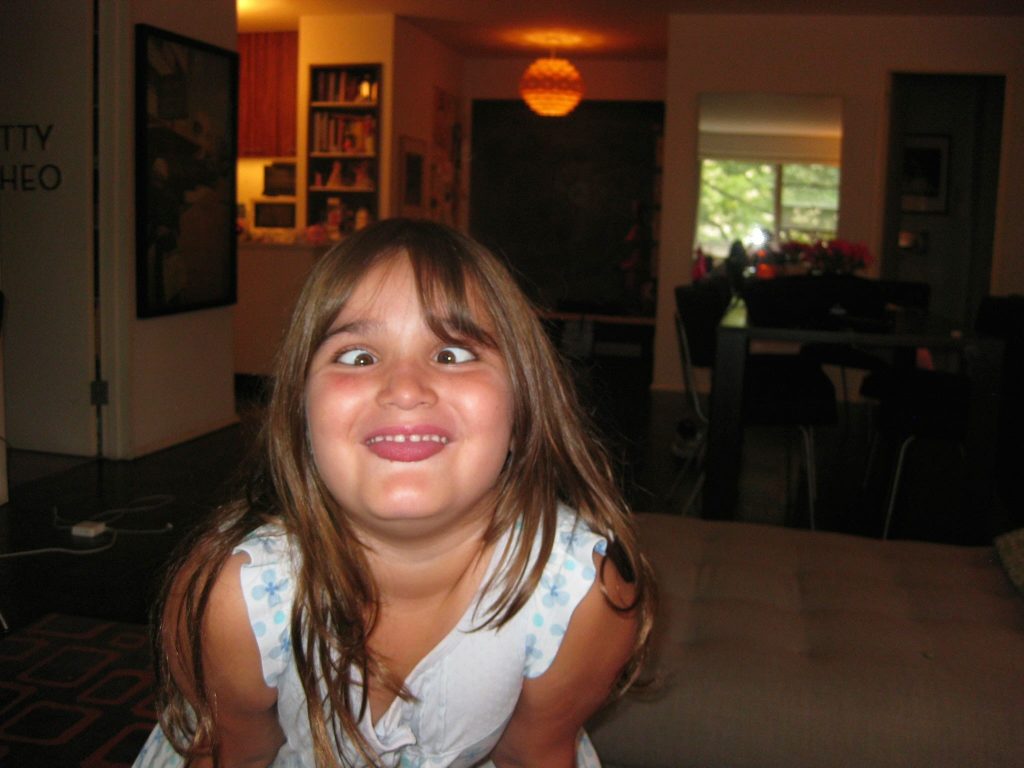
A decade since the April 2012 "Weight Watcher" piece was published, Kubovy-Weiss still hasn't read it.
But she told Insider that years later as a teen she read Weiss's 2013 follow-up memoir, "The Heavy: A Mother, A Daughter, A Diet" — a double entendre referencing her playing the bad-cop role.
She also told Insider she looks back fondly on the Vogue photo shoot.
"I loved the attention — it was like the best day of my life," she said. "They came and brought me all of these dresses, and did my hair and makeup and I thought, 'OMG, I am a supermodel.' It was so much fun."
Kubovy-Weiss doesn't judge her mother for putting her on a diet and says they're still 'best friends'
Even if others were less forgiving, Kubovy-Weiss says she and her mom are "best friends" and she doesn't think her intentions were bad. Indeed, the teen believes her bond with her mom was deepened by the dieting.
"I have a lot of respect for her and what she did," Kubovy-Weiss said, adding that her mom believed she was following medical advice at the time.
In recent years, the mother and daughter shared a moment as they pored over old home photos taken after Kubovy-Weiss's initial weight loss.
"I think I made you lose too much," Weiss said, according to her daughter, who told Insider she was surprised over her mom's admission of possibly going overboard. Kubovy-Weiss said her mom remarked that although she felt her daughter needed to lose weight for her health, on reflection she thought "we went beyond that point."
Weiss is still in her head a lot, she said, but not every decision is influenced by what her mother would think. "She's shaped my voice that I try to be true to in my mind," she said.
Kubovy-Weiss said that growing up she experienced bullying and fat-shaming, and there were moments she wished herself "skinny."
"I am more confident when I feel better about my body, and because of the society we live in, I feel better about my body when I'm thinner," she said.
At times, she went to extreme lengths in pursuit of a thinner frame.
"I lied about my age so I could get into [spin class] at a younger age," she admitted, saying she bumped up her age, then around 10, for a spin studio where she fell short of the age requirement. "I was several years too young to be there, and I was still doing that."
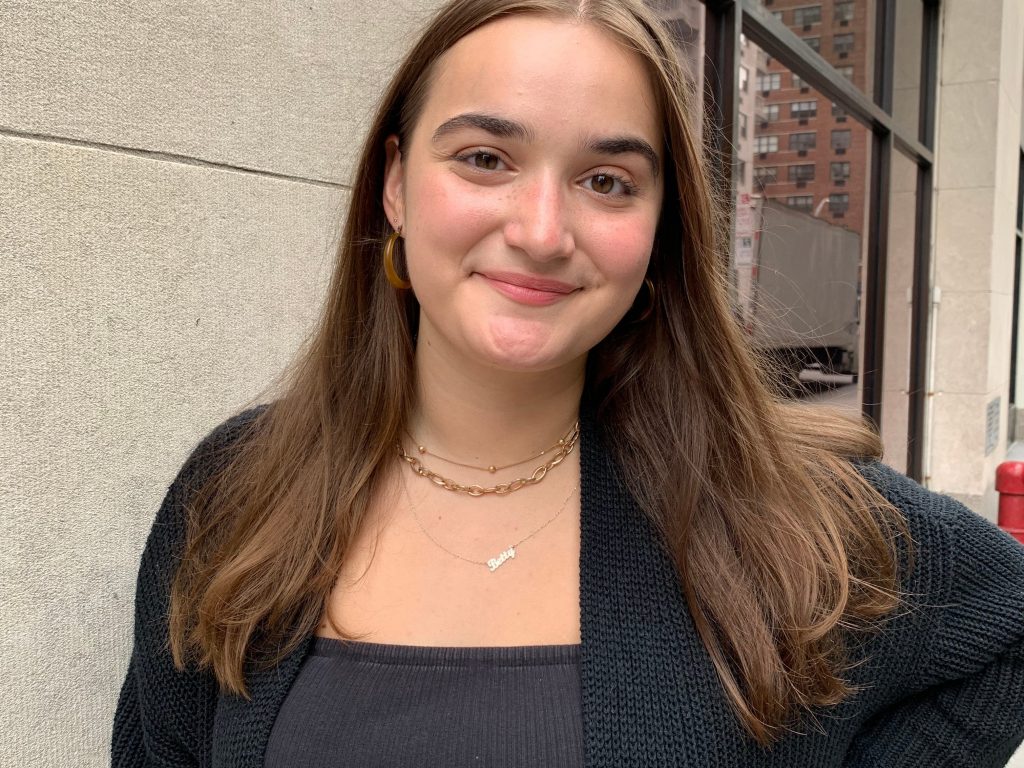
For Kubovy-Weiss, her relationship with her body image is a work in progress
Now, at 18, Kubovy-Weiss is opening up about her ongoing body-image issues.
The self-proclaimed body activist, who calls herself "curvy," admitted she went on prescription medication for hunger management a few months ago – a decision she came to after serious contemplation, she said.
"I'd gotten to the point where I was dieting for a decade," she said, noting that she's tried dozens along with meal plans and exercise regimens.
It can be exhausting to think about weight all the time, the teen, who's into theater and sketch comedy, said. These days, Kubovy-Weiss's own body image can be a "constant struggle."
"While I'm aware that all my plans and habits that I use for weight management come out of this culture of fat-phobia, I don't blame myself," she said. "I think it's not my fault that there's this societal aspiration towards skinniness."
One message she wishes everyone would adopt: "I think we need to leave people alone and let people do what they want with their bodies."
